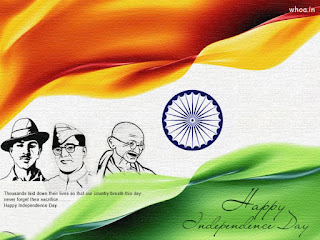 |
| Nellie Sengupta (1886–1973)Veethi |
 |
| Nellie Sengupta (1886–1973)Kamat's Potpourri |
Nellie Sengupta (1886–1973), an English woman, took keen interest in India's freedom struggle along with her Bengali husband and decided to fight for the Indian natives who were exploited by the British in every conceivable way. In order to get involved actively and get better exposure with prominent Indian freedom fighters, she joined the Indian national congress and fought for Indian Independence. Hard working and assertive, she won the trust of countless major political leaders and this provided a platform for her to express her zeal in India' s freedom . No doubt she got a chance to become an elected president of the Indian National Congress at its 47th annual session at Calcutta in 1933.
\
Daughter of Frederick and Edith Henrietta Gray, her original name was Edith Ellen Gray and was brought up in Cambridge. She fell in love with a young Bengali student
 |
| Whoa.in |
Called to bar after his return to Bengal, India, Jatindra became a successful lawyer in Calcutta and developed good social contacts with a wide section of people, in particular, freedom fighters and local politicians. His political career began in 1911 as he was a delegate from Chittagong to Bengal provisional Conference at Fridpur. After giving up his practice, he joined the freedom struggle going on at that time and soon became a dedicated worker and was close to Gandhiji and while he was in Bengal Jatindra was quite helpful to him. He used his political contacts wisely and became the Mayor of Calcutta for five terms, besides he became the head of the Bengal Legislative Council
 |
| Jatindra Mohan Sengupta. JHE Auctions |
In the same year, when the Salt Satyagraha gripped the attention of the British, to nip it in the bud, they arrested many senior Congress leaders including Pandit Madan Mohan Malviya who was the President-elect of the Congress. This happened before the Calcutta Session of 1933. As there was no effective leader to head the session, the responsibility fell on Nellie Sengupta who took the place of Malviya and became the third woman, and the second European-born woman to be elected. Yet another credit was she became an elected Alderman to the Calcutta Corporation in 1933 and 1936. She was a member of the Bengal Legislative Assembly in 1940 and 1946 on Congress ticket. During the Second World War, when her attention was drawn to foreign troops' misbehavior, she never failed to condemn such acts.
After partition of India in 1947, she preferred her husband's hometown of Chittagong (then Pakistan), in Bangladesh and stayed in his paternal house. Keenly involved in social welfare activities in Chittagong, she also took care of Hindu minorities problems there. She was elected unopposed to the post of East Pakistan Legislative Assembly in 1954. When Bangladesh was born in 1971, she remained in Chittagong and in 1972 she broke her hip and came to Calcutta for medical treatment.
Considering her selfless sacrifices and her major role in India's struggle for freedom with her husband, both state and central governments honored her lavishly. Thorough out Jatindra's life, as a true wife, she was behind him and gave inspiration and moral support and did not mind risking her life and privation. She died in Calcutta in 1973. Till her last breath, she was loyal to India and lived the life of a worthy woman, taking care of the aspirations of her husband. No doubt, she won the esteem and admiration of Indians from all walks of life.
http://www.istampgallery.com/nellie-jatindra-mohan-sengupta/
https://en.wikipedia.org/wiki/Nellie_Sengupta









